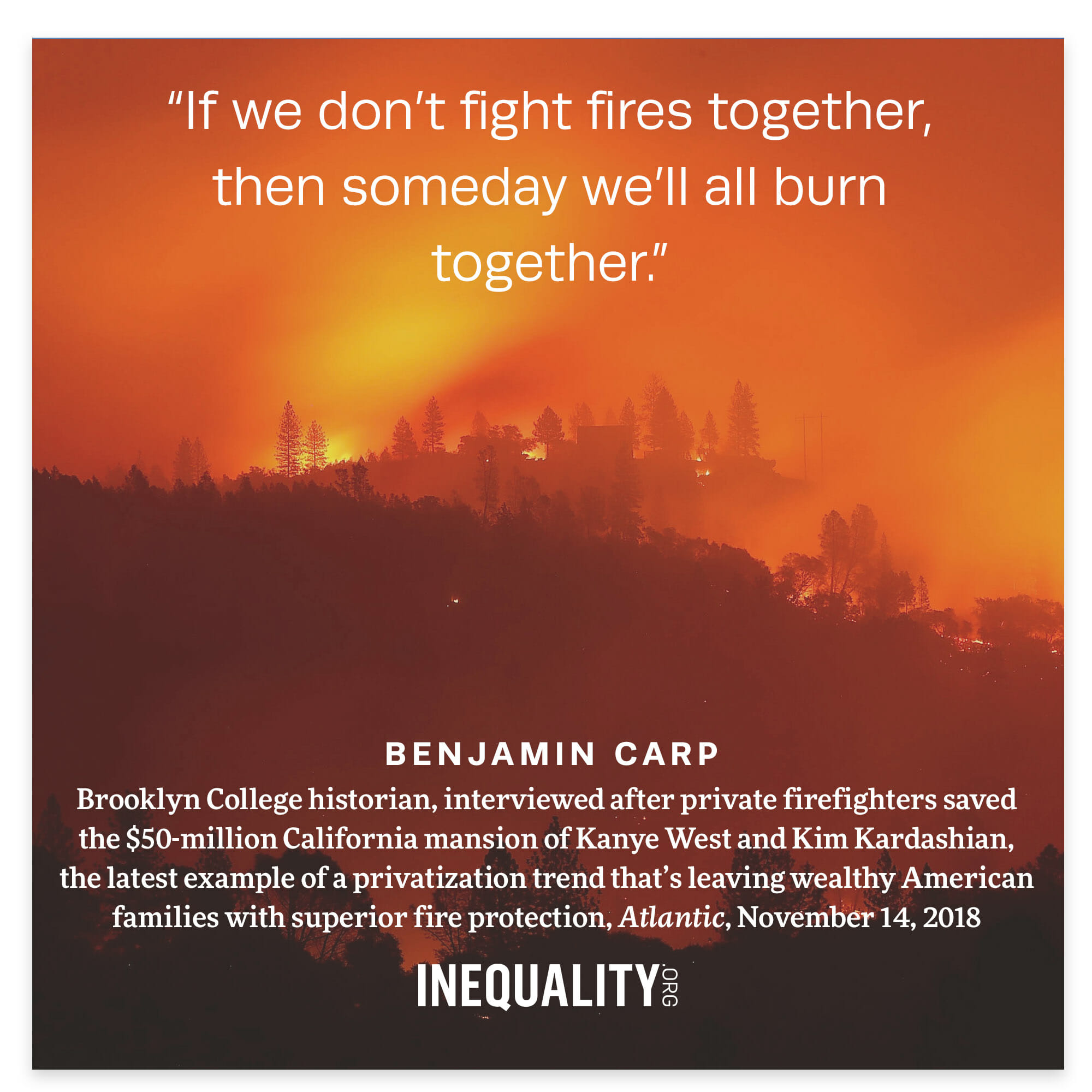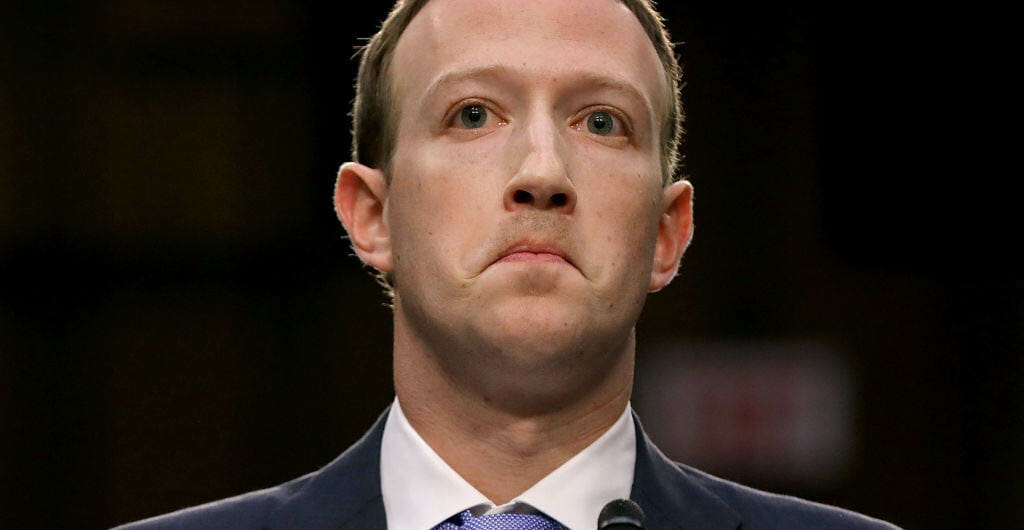Should our list of what we ought to be thankful for include the philanthropy of our ultra wealthy?
|
THIS WEEK
|
Households across the United States will give some heart-felt thanks this Thursday. Should our list of what we ought to be thankful for include the philanthropy of our ultra wealthy, like Michael Bloomberg's $1.8 billion gift to Johns Hopkins University?
Big donations mask a troubling trend, as we document in our newly released Gilded Giving report. Gifts like Bloomberg's make up a large — and growing — share of America’s philanthropic assets. But that concentration of philanthropic power carries real risks. Some gifts from the super rich simply function as a cover for self-interest, from promoting personal agendas to creating new pathways to power.
What about top-heavy giving that seems to be purely well-intentioned? A truly healthy society allocates resources through democratic give-and-take, not by hoping the wealthy take interest in the causes we care about. May the give-and-take at your table this Thursday be robust!
Chuck Collins, for the Institute for Policy Studies Inequality.org team |
|
|
|
|
INEQUALITY BY THE NUMBERS
|
 |
|
|
|
|
|
|
FACES ON THE FRONTLINES
|
 |
Accessible Housing Should Be Affordable, Too
|
| When Anne Johansen imagined the difficulties of living in a nursing home, she was mostly nervous about the food and potential privacy issues. But over the course of her seven years in nursing homes, Johansen moved four times due to mistreatment and safety concerns. After unsuccessfully advocating for change within the nursing home system, Johansen reached out to the Boston Center for Independent Living and began the long journey of transitioning to her own accessible apartment. Johansen, who was diagnosed when she was 6 years-old with CMT (Charcot Marie Tooth Disease), is one of many people with disabilities in Massachusetts who’ve faced housing discrimination. Now she’s an advocate for housing issues, working to ensure that people with disabilities can find a home that’s both accessible and affordable. |
|
|
|
|
WORDS OF WISDOM
|
 |
|
|
|
|
|
PETULANT PLUTOCRAT
OF THE WEEK
|
 |
| Plausible Deniability? This CEO Needs Practice |
| The online giant Facebook has come under intense scrutiny of late for its cavalier approach to protecting privacy and fighting disinformation. Now Facebook is also coming under fire for its efforts to “deflect blame” for its failures. Among those efforts: hiring a Republican PR firm that proceeded to promote the notion that investor George Soros is pulling the anti-Facebook strings, a charge that plays off a standard authoritarian anti-Semitic trope. In comments last week, after the New York Times detailed Facebook’s foot-dragging on privacy and disinformation, Facebook CEO Mark Zuckerberg denied any knowledge of the GOP PR firm his company had hired and protested that “to suggest that we weren’t interested in knowing the truth, or that we wanted to hide what we knew, or that we wanted to prevent investigations is simply untrue.” But then Zuckerberg went on to regurgitate the PR firm’s line that support from Soros to a nonprofit criticizing Facebook somehow delegitimized the criticism. |
|
|
|
|
GREED AT A GLANCE
|
 |
|
|
|
|
|
|
TOO MUCH
|
 |
| Some Leveraging Inspiration from Old Archimedes |
| The ancient Greek thinker Archimedes, the greatest scientist of his time, understood the principle of leverage better than any mortal ever had. With a long enough lever and a place to stand, Archimedes believed he could move the world. How could we move the world today — to greater equality? Senator Bernie Sanders has just introduced legislation that demonstrates how corporate CEO-worker pay ratios could be just the lever we need. Inequality.org co-editor Sam Pizzigati, author of The Case for a Maximum Wage, has more. |
|
|
|
|
|
|
MUST READS
|
This week on Inequality.org
Lauren Burke, Green New Deal? Bring It! But Don’t Forget Your Union Card. To be truly transformational, any bold green jobs proposal must be rooted in the right to organize.
Sarah Anderson, Corporations Should Share the Wealth Before Buying Back Stock. Senator Sanders has introduced a bill that would ban Walmart and other big corporations from repurchasing their stock unless they narrow the gaps between CEO and worker pay.
Elsewhere on the web
Eillie Anzilotti, It’s time to break up wealth dynasties in the U.S., Fast Company. Three U.S. families control more wealth than 4 million average households. We can fix that.
Michael Leachman, Michael Mitchell, Nicholas Johnson, and Erica Williams, Advancing Racial Equity with State Tax Policy, Center on Budget and Policy Priorities. A new report details how state and local fiscal policies have cemented racial disparities in power and wealth.
Alexis Madrigal, Kim Kardashian’s Private Firefighters Expose America’s Fault Lines, Atlantic. A deeply unequal America is increasingly privatizing firefighting, leaving the rich with better protection.
Patrick Collinson, Should the rich pay more for the same services – and higher fines too? Guardian. The reasons why rich people should pay bigger fines for speeding and running red lights.
Tracy Jan and Kathy Orton, Northern Virginia property owners are delighted Amazon HQ2 is moving in. Renters, first-time buyers, and low-income residents aren’t, Washington Post. In Seattle and San Francisco, tech campuses have largely benefited the wealthy.
Matt Stoller, This time, Amazon has gone too far: Jeff Bezos's company is profiting and taxpayers are paying the price, New York Daily News. Amazon has simply become too powerful. |
|
|
|
|